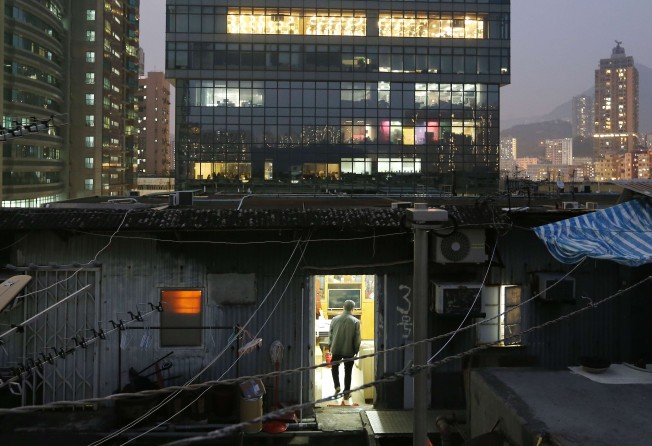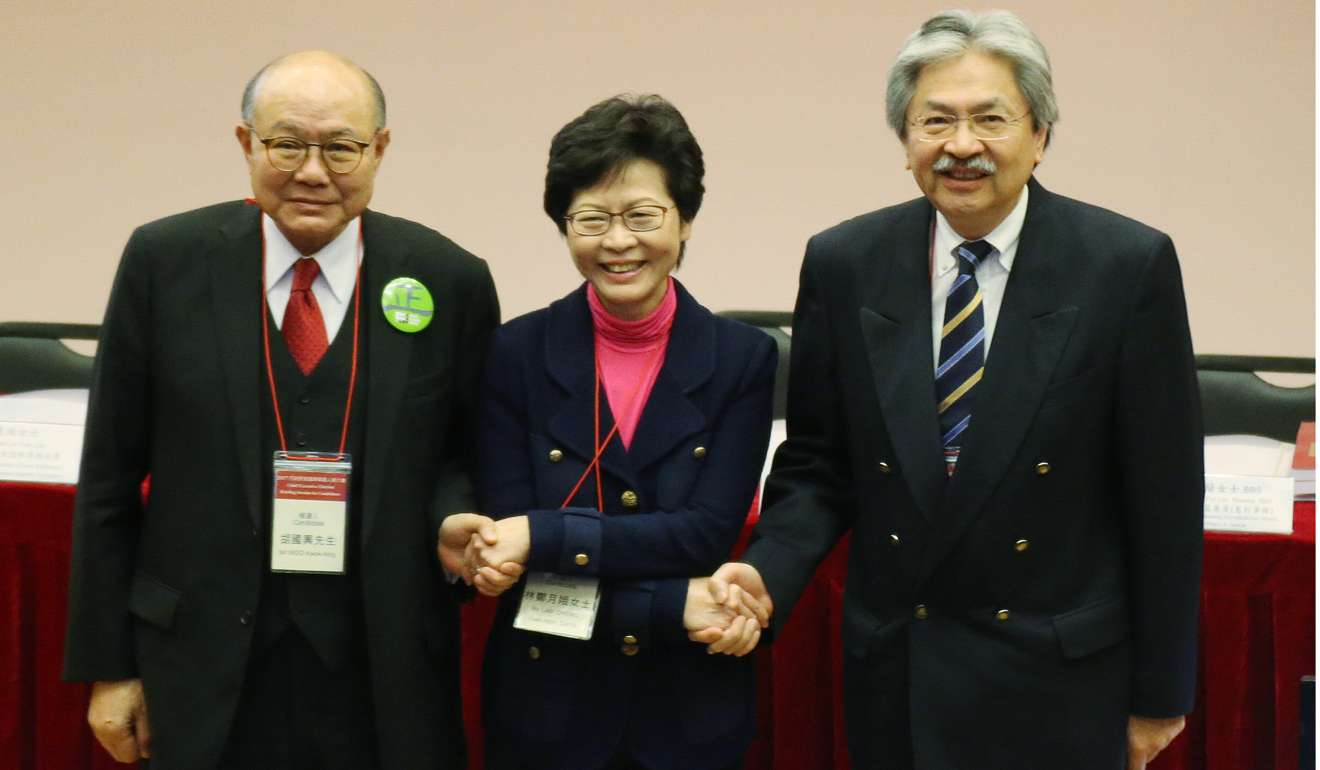Hong Kong’s leadership contenders must debate housing and health care, not personality traits
Albert Cheng says chief executive contenders should focus on important issues that affect Hongkongers, who have a right to hear the plans even if most don’t have a vote in the election

Polling day for the chief executive election is just around the corner, on March 26. Instead of substantial policy issues, media coverage has, by and large, focused on the candidates’ personalities and their publicity tactics.
Carrie Lam Cheng Yuet-ngor and Woo Kwok-hing crossed swords in the first debate on Sunday. However, there was little discussion about the pressing issues of housing, land supply and health. The three candidates, including John Tsang Chun-wah, should elaborate on their plans for Hong Kong.
First, housing. Our policy of high land prices has remained unchanged for decades. Today, we face a shortage of affordable housing. The Leung Chun-ying administration has imposed cooling measures to try to suppress runaway property prices. Yet, they have not tackled the root causes. The government has to try something else.
I believe the property market should be strictly divided into two segments – public and private. The government should, on one hand, build more public rental housing and Home Ownership Scheme units; and, on the other, ensure minimal interference in the private market and allow prices to self-adjust. The priority should be to allocate land for public housing, while there should only be limited supply for private housing.
In his latest policy address, Chief Executive Leung Chun-ying suggested that the government would develop country parks as well as rural areas on Lantau Island. Yet, he is reluctant to develop brownfield sites in the New Territories. Why?
It is a lame bureaucratic excuse that there is not enough land in Hong Kong. The so-called brownfields alone are estimated to be about 1,200 hectares. There is also lots of idle government land in different areas, on top of the land now used for the golf course in Fanling, as well as military sites in Admiralty, Stanley and Kowloon Tong. The city should seriously consider reprovisioning these for housing purposes.
More land can come from redeveloping the old co-op premises built for civil servants during the British colonial period. The government can also amend the small house policy and move eligible indigenous New Territories villagers to public housing. Given such a multipronged approach, there would be no need to tamper with our country parks.

Meanwhile, financial and administrative measures are just as crucial. First, the government should use the proceeds from the cooling measures to redistribute wealth. Second, the government should merge the Housing Authority, Housing Society and Urban Renewal Authority into a new housing bureau. This will help streamline operations and ensure resources are used most effectively, and the pace of urban renewal and the construction of public housing can both be accelerated.
Another burning issue is health care, where Hong Kong needs sustainable financial investment. At present, our medical budget is only about 6 per cent of gross domestic product. The government should raise it to match the average of developed economies, at over 8 per cent. It should also try to cut costs while increasing revenue for public health care.
Furthermore, the Medical Council needs to be more transparent to earn public confidence. Adding more members from outside should help improve how disciplinary hearings are held, and dent the impression that the council is overly protective of its own people .
Hong Kong faces a serious shortage of medical personnel. Doctors are overworked and patients have to wait hours, at times, to see a doctor. To ease public doctors’ burden, the council should objectively review the requirements for overseas doctors to practise in Hong Kong.
Hopefully, in the run-up to the election, the three aspirants for the chief executive office will focus on housing and health, as well as education and other equally important issues. After all, only 1,194 privileged electors are entitled to cast a vote. The vast majority of us should at least be given a chance to hear in detail what they have in mind for us.
Albert Cheng King-hon is a political commentator. [email protected]